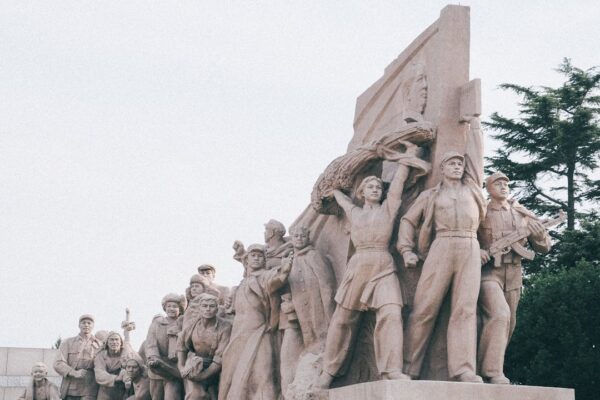I was born in Portugal, a small European country with a history marked by courage and struggle for independence. When Portugal decided it had the right to exist in 1143, no one could clip its wings. We wanted to discover the world; in a caravel, we turned storms into hope. Over centuries, there were many threats to the sovereignty of the oldest nation-state in the world, but with this free and humble spirit, we never allowed ourselves to be subjugated by anyone or anything.
I was born in the 90s, and history books at school opened this idyllic window for me, almost indistinguishable from a fairy tale. In my earliest memories, Lisbon inaugurated the largest bridge in Europe, and there was a massive exhibition honoring the 500 years of discoveries that I had learned about in school. Little did this child know that these were the last years of economic convergence between glorious Portugal and the Europea Union, and the consequences for the future of my generation.
Portugal was under a nationalist dictatorial regime for 48 years, which ended with the military revolution on April 25, 1974, known as “the day of freedom.” But it was only in adulthood that I learned that after the day of freedom, there was a revolutionary period with terrorism, expropriations, and attempts to establish a communist regime, which required a counter-revolution on November 25, 1975. Blood was shed so that Portugal would not become a communist country.
“Why wasn’t I taught this in school?”
At school, they taught me it was good to belong to the European Union, but they didn’t ask me what I thought about it.
At school, they taught me to celebrate the establishment of the republic but made me feel guilty for preferring the monarchy.
At school, they taught me that we lived in a dictatorship, but they didn’t tell me that the preamble of the Portuguese constitution envisions the “path to a Socialist society.”
Portuguese education is provided by the state, the curriculum is designed by the state, and the state is hijacked by the Socialist Party, which has governed Portugal for 22 of the last 28 years.
We live with the illusion that we are free, but here, being Social Democratic is considered “fascist,” and liberalism is a new word that emerged in 2019 from the hands of the first openly liberal party.
We pay so many taxes; we are the 6th country in the European Union with the highest tax burden, but nobody ever explained to me why I still have to pay for private healthcare if I need to see a doctor immediately, my university tuition every month, and even the airline TAP (Transportes Aéreos Portugueses). Nobody ever asked me if I wanted to take on these expenses; nobody signed this contract.
At 21, I was literally paying to work, as a considerable part of my income went to the state, tuition, and transportation. I was already poor, and the more I tried to change this situation, the more obstacles I encountered, the more I earned, the more they took away from me. An endless circular scheme. With the arrival of new political forces on the national scene, something that hadn’t happened for a long time, I decided to read all the party programs. Reading the program of the party that self-proclaimed as “liberal” was the answer to the enigma of my own life. “Why don’t we use the formulas of the rich countries?” All the solutions indicated made sense and solved all the walls I had bumped into.
I started a deep dive into liberalism. Its inconvenience was so evident: It implied giving power to the people, or as the left always successfully sold us: “abandoning the people, embracing big economic groups.”
I realized that the great difficulty since April 25 was not being afraid of not being leftist. Anything that wasn’t a Socialist discourse was associated with the dark right-wing dictatorship. The liberals allowed that to happen, and financial and expressive freedom became increasingly compromised.
This is me sharing flyers for about libertarian ideals. It isn’t easy to explain it to an aging society that had Socialists as heroes, the same socialists who vote against financial literacy in schools, but it must be done.
Now that I had understood what had been hidden from me, I started writing, I began exposing the facts on social media, and I realized that this was an important job and an endless mission: When we start questioning, we realize that freedom is not guaranteed.
We leave home at 33, and on the eve of elections, it’s the youth who most want to empower Nationalist Parties.
Who condemns us?
My generation has already understood what was sown and wants to settle accounts with those responsible.


